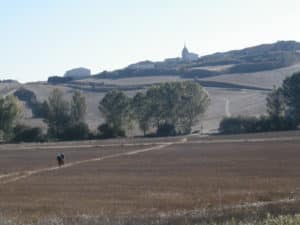I had a fantastic opportunity to visit Bhutan this summer with Bridge to Bhutan. Our tour was led by the enthusiastic and knowledgeable Tshittim Jamtsho, a Bhutanese tour guide who’s been leading small groups around his native country for more than five years. I sat down with him over a cup of butter tea to talk about tourism here, as well as the past, present, and future of this unique remote Himalayan Kingdom.
GoMad Nomad: Why should visitors come to Bhutan?
Tshittim Jamtsho: Bhutan is a beautiful country. Popularly known as the country of happiness where our development policy is guided by the principle of Gross National Happiness. Bhutan offers its visitors a lot of cultural heritage and a serene natural environment.
Bhutan has rich biodiversity. The country offers more than 200 species of vertebrates, 676 bird species recorded so far, and we believe more than 800 species of birds (which is more than the whole of America). We have 800-900 species of butterflies. More than 5,000 plant species, including 48 species rhododendron alone, inhabit Bhutan. Bhutan is considered one of the top 10 hot spots of biodiversity in the world.
The people are hospitable and no wonder you could see their smiles perpetually fixed on their faces even when they toil hard in the fields.
GN: Bhutan is conscientious of preserving its culture. What aspect of Bhutanese culture is most at risk with globalization?
TJ: Personally, I feel it is our dress. Our national dress, especially that of women is being quite modified, losing its original form. In the olden days, women used to wear a full length dress—kira, but now it’s been modified to the half kira.
People are now being quite materialistic. It seems like they are actually losing their Buddhist and Bhutanese values. Over the years they are becoming self-centered and the trust between partners [husband and wife] is also being eroded. People have become more independent. We’re seeing lots of divorce. Also, it’s disheartening to see siblings fighting legally for their family’s property. With the internet and television, the youth especially are becoming more western than modern.
GN: What is your favorite thing about your country?
TJ: First and foremost we have had and have very wise, farsighted, and benevolent leaders, our Kings, who have always looked after the welfare of our people. It is really touching to see our kings walk the length and breadth of our country to visit every nook and corner of the land, interacting with people, asking about their problems, and solving them.
GN: How long have you been a tour guide? What is your favorite part about the job? What do you like to share most about your country?
TJ: I practiced as a guide-in-training since 2006. In 2008, I got my tour guide license and now work as a freelance travel guide.
I get this golden opportunity to interact with people from different parts of the world. I meet people from different backgrounds, professions, and beliefs. I like to learn about my guests.
GN: Why do foreigners come to Bhutan? Are their expectations met?
1) They heard about Gross National Happiness
2) Beautiful natural environment
At the end of our tours, we give questionnaires, which overall have come back very good. But we did see some complaints about the infrastructure here (the roads, hotels, food etc.). Since tourism is a fairly new industry (since 1974) we are working towards improving the facilities and professionalism.
GN: Part of Bhutan’s tourism program philosophy maintains “high value, low impact”. What does low impact mean to you?
TJ: Impact I understand as negative impact. The youth could be influenced by carefree backpackers like in Nepal, who are abusing drugs. They could also influence the dress code.
GN: What is one thing you would change about your country if you could do anything?
TJ: I would like to improve the road conditions and I would like to advise the youth and the future generation not to get too carried away by what’s happening in the outside world. I would like to remind them that we are Bhutanese who love peace and compassion.
GN: Bhutan is famous for its policy of gross national happiness. Do you agree that most Bhutanese are happy? What is the secret to their happiness?
TJ: It may not be 100% of Bhutanese that are happy, but I could say that 90% of people are happy. Part of this is due to our wise kings which have led Bhutan to progress from an isolated kingdom to a friendly nation with very good relations with neighboring countries.
Secondly, our religion, Buddhism gives us contentment because it teaches us to be happy with what we have. This controls peoples’ minds from being too materialistic.
GN: Are you happy?
TJ: I’m happy. I’m privileged and blessed to be born as a Bhutanese.





I have heard about this happiness thing, not sure if it was from your blog or another but its a real interest, the idea that a country bases itself around happiness is certainly interesting